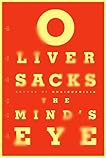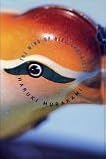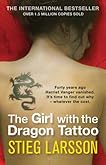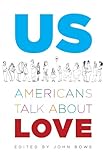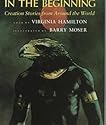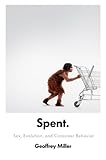It isn't often that I read a book that I find truly speaks to me. Some books are engaging in that I find the material of interest while other books are written well and I find myself wanting to see what happens next. For a book to really speak to me it has to be something different. After reading an article in a magazine I went to buy Urban Tribes by Ethan Watters. At the same time I ended up picking up What should I do with my life? by Po Bronson, since it was mentioned on the back of Watter's book. I hoped Bronson's book would speak to me. It didn't.
Urban Tribes ended up sitting on my bookshelf for months with other books I had hoped to read or thought I was going to read. While packing for my drive to Virginia to attend Dave Fried's wedding I was trying to decide what I should bring along to read. I picked up Urban Tribes as it seemed about the right length and attending yet another wedding this year made it seem that much more relevant. Turns out it was and it really spoke to me.
The idea of the urban tribe, and let me say right now I'm badly paraphrasing most of the rest of this, is a group of never-married friends, having a high clustering coefficient, that are experiencing and sharing life together. My generation (and I use that term loosely since I don't have a better one) has chosen to delay marriage long past the point that our parents did. While politicians bemoan this breakdown of traditional family values, my generation has chosen to create their own values one of which is to question the traditional trajectory of marriage.
Courtship is all but dead. Parents may still try to set us up, but the role that they play in helping us find our marriage partner has all but gone away. My generation also looks at our parents and sees the coin-flip chances that a marriage will last and wonders is there a way to improve our chances. The book argues that the urban tribe has changed the middle years between leaving our parent's house and starting married life, for the better.
The urban tribe provides a support structure like a traditional family, friends to help you when you are feeling down, friends to help you celebrate the good times, friends to lend a hand with projects, and friends just to hang out with. The difference between a standard group of friends and an urban tribe is that high clustering coefficient, everyone in the tribe is friends with everyone else in the core cluster. Some of the friendships maybe deeper than other, but it is almost always a fully connected cluster.
Since the tribe is so close, it offers an arena of safety to help one grow and become a better person. You can do stupid stuff and the tribe will be there to help fix things. You can use them as a sounding board for ideas and the tribe will tell you when you are being silly, stupid, or dumb. The tribe knows what you are capable of and will help steer you towards that better self. Instead of experiencing that discovery within the contexts of traditional relationships, which carry much more emotional turmoil, the tribe helps you improve in a more relaxed setting.
Not all is golden with urban tribes though. Since the group is a central part of your life it is hard to break free. The urban tribe doesn't want its members to leave and as such the group can almost sabotage those that try to. What is important to keep in mind is that the nature of the relationship must change at some point. Just like moving our of your parent's house, you need to move out of your tribe to take the next step in your life which in this context is usually marriage.
I've feel I've done a poor job of summarizing what the book tried to express. Unlike many books I read, I didn't jot down notes while reading this one so I'm relying more on my memory than quotes from the book. In any case I highly recommend this book to my fellow never-marrieds that find themselves living life with the same core group of people. Yes there are other people like that out there and yes it is going to be okay.
What I haven't mentioned is why this book spoke to me. I feel for the past few years I've been living in such an urban tribe (primarily with the people that read this blog). Not one that fits all of the themes I mentioned above, but our own home brewed combination that like most social concepts has many variations. Coworkers would look at me funny when I talked about having regular sit down dinners with my roommates (the closest members of my urban tribe) or the fact that we had a regular schedule for grocery shopping together. I wondered what the difference was, why it worked for us, and if we were the only ones.
Going to my high school reunion last year really brought home the stark difference my life had taken from many friends I had during high school. Most were married, all but married, or already having kids. There I was the same age and general background, but not even close to tyeing the knot. Yes I'd been in a serious relationship and dated a bunch, but obviously didn't end up married. A recent question from a friend about what I wanted my wedding to be like left me stumped having never really thought about it. I was still experiencing life, finding myself, enjoying my friends company, and lost in random hobbies.
I'm not against getting married. It has just been a combination of not finding my soul mate and still trying to define myself that has defined my personal marriage time line. I'm sure that vibe of not completely knowing myself has showed through in many a situation that otherwise might have been the start of something serious. As such I agree with the author that "Single people tend to see themselves as a failure in the marriage game until they found themselves in a relationship headed for the alter. They perceived little gray area in their love lives - things were either going great or badly." I find hope in the fact that there are others out there like me and that our time for love will come.
Tags: books gilmanmanor life
























